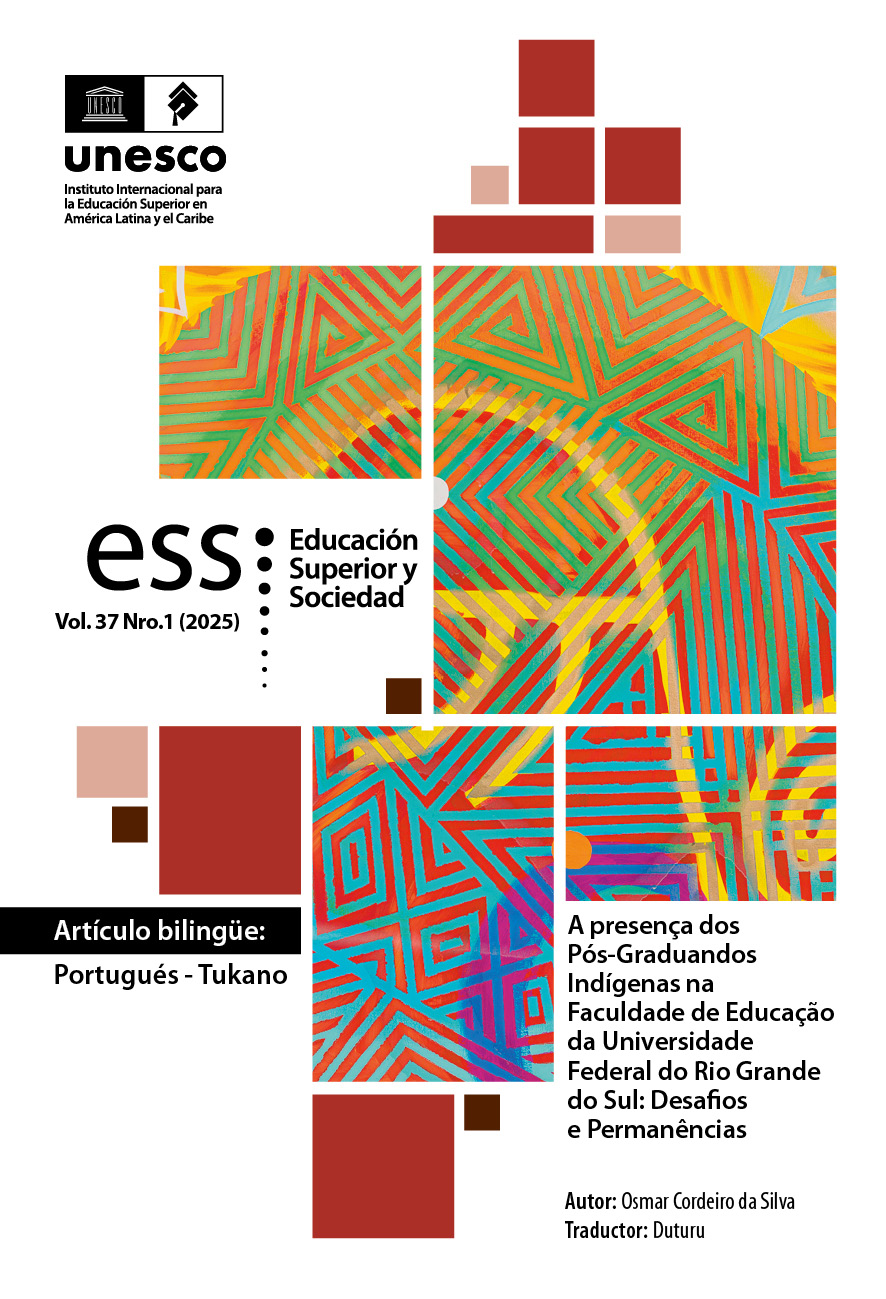The Presence of Indigenous Graduate Students at the Faculty of Education of the Federal University of Rio Grande do Sul: Challenges and Remains
Abstract
This paper aims to reflect on the journeys of indigenous students, Kaingang, Guarani, and Tukano, in a postgraduate program, based on their own readings, challenges, and perspectives. It will also seek to analyze the policy of quotas and permanence for indigenous students, as well as their struggles and achievements, the production of knowledge from ancestral knowledge, the relationship with professors in the program, and the promotion or not of collective dialogue between scientific and Indigenous knowledge. The reflections presented seek to contribute to and enhance the experiences, obstacles, and challenges faced by Indigenous researchers in the postgraduate program during their years at the university, thus helping to make the university more open to inter-epistemic dialogue, even if it generates conflict. Thinking in this direction seems to us to be a productive way to initiate changes, since what is sought in programs and universities is indigenous access and permanence in a respectful, honest way, in which they can learn from each other from an intercultural and inter-epistemic dimension.

Copyright (c) 2025 Osmar Cordeiro da Silva

This work is licensed under a Creative Commons Attribution-NonCommercial 4.0 International License.
Copyright notice
Copyright allows the protection of original material, and curbs the use of others' work without permission. UNESCO IESALC adheres to Creative Commons licenses in the open access publication of ESS. Specifically, texts published in this journal are subject to a Creative Commons Attribution-NonCommercial 4.0 International (CC BY-NC 4.0) license: ESS is an open access journal, which means that all content is freely available to the user or their institution. Users may read, download, copy, distribute, print, search or link to the full text of the articles, or use them for any other lawful purpose, without asking prior permission from the publisher or the author, always making sure to cite the author. Commercial use is not permitted. ESS requires authors to accept the Copyright Notice as part of the submission process. Authors retain all rights.
The full license can be found at https://creativecommons.org/licenses/by-nc/4.0/
 Attribution - NonCommercial (CC BY-NC 4.0)
Attribution - NonCommercial (CC BY-NC 4.0)
This journal does not charge authors for the submission or processing of articles. The authors of the contributions will receive acknowledgment of receipt that the work has reached the Editorial Team of the Journal.



